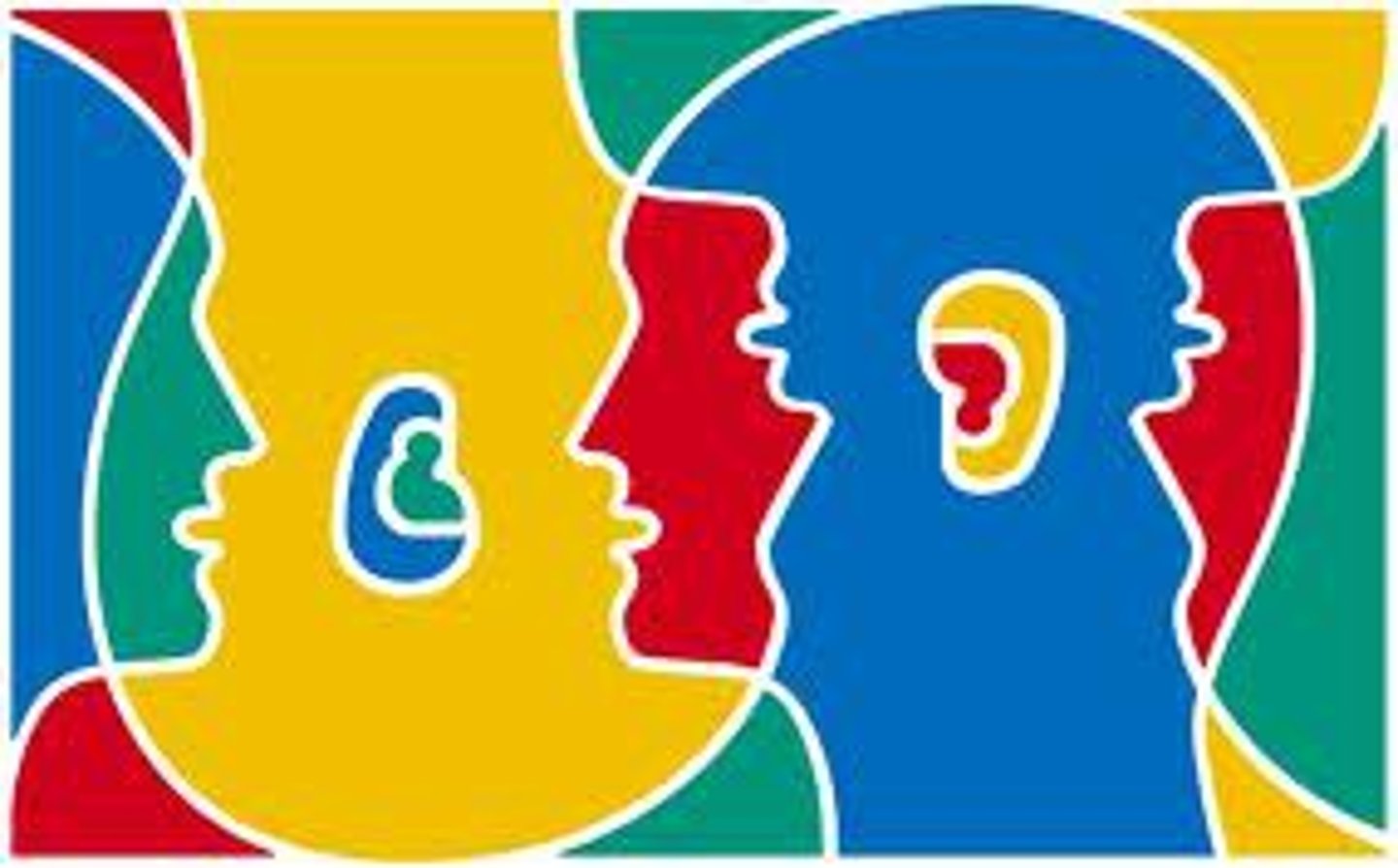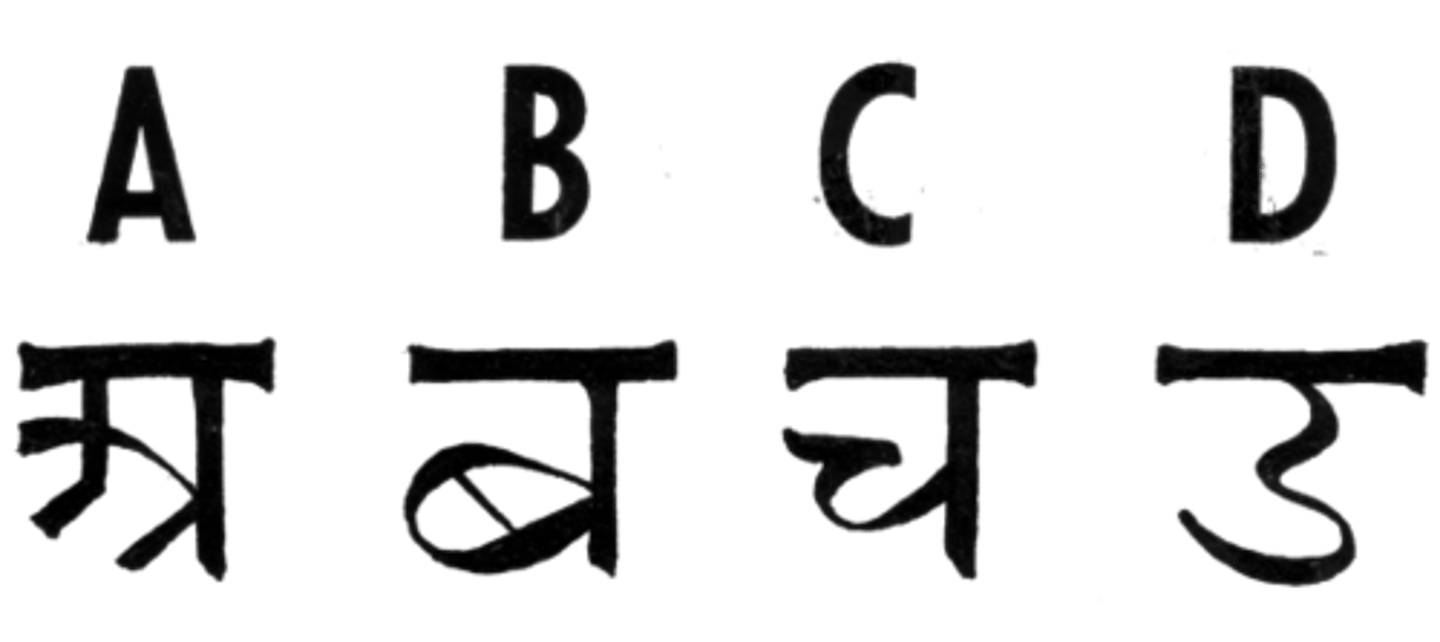CAPE Communication Studies Module 2
1/64
There's no tags or description
Looks like no tags are added yet.
Name | Mastery | Learn | Test | Matching | Spaced |
|---|
No study sessions yet.
65 Terms
Caribbean Standard English
An accepted standard of English developed in the Caribbean. It is as much a
standard English as is British Standard English, American Standard English,
Australian Standard English and Nigerian Standard English. CSE differs from
other Standard Englishes primarily on the phonological and lexical levels, with no
appreciable difference in grammar, particularly in the formal written mode
Lexical differences can be found generally in the areas of body parts, clothing,
food/drink and cultural beliefs. Some peculiar CSE expressions are: maubi, roti,
obeah, parang, cut your eye at somebody, suck your teeth
In terms of phonology, the international patterns of CSE vary within the
Caribbean territories as well as from other standard Englishes.
Caribbean Creole
A language with a lexical base primarily from a European language but with a
grammar that is non-European in many respects. Caribbean English Creoles
(CEC) therefore have English as their lexical base. An example of a Creole with a
French lexical base is St. Lucian Kwéyòl. The grammars of these Creoles are in
some respects patterned on their West African sources. An example is the
predicative use of adjectives, as in 'mi siki' 'mwen malad'.
code-switch
Move between varieties of language within a single utterance or in a conversation,
for example, I went late to the market and mi no get no food. In this utterance, the
speaker moves from Standard English I went to Creole mi no get no food.
Creole
A native language which has its beginnings in situations of contact where groups
of people who did not share a common language were forced to communicate with
each other.
Creole-influenced vernacular
A form of social communication that is in routine, widespread use in certain
communities, for example, Barbados, and that is influenced by some features of a
Creole.
dialect
A regional or social variety of a language, usually noticeable through features of
vocabulary and pronunciation and, to a lesser extent, grammar. Within English,
several regional dialects can be identified, such as British English, American
English, Nigerian English, Australian English and Caribbean English. Jamaican,
Bajan, Belize Kriol and Trinidadian Creole are dialects of Caribbean Creole.
Within Caribbean territories, there is further dialectal variation.
language
System of communication that combines sounds, symbols, or gestures according to a set of rules about word order and meaning

idiomatic expression
An idiomatic expression is a saying or phrase with a figurative rather than a
literal meaning, which cannot be worked out from the meaning of the component
words. Examples of idiomatic expressions in English are rain cats and dogs,
kick the bucket, not my cup of tea.
Idiomatic expressions in Caribbean Creole include to kiss/suck teeth, to cut your
eye (at someone)
international language
(Also referred to as global language.) A language that serves as a lingua franca
for peoples whose native languages are different. Of the world's 6,000 or so
known languages, three (English, Spanish and French) are generally considered
as international languages. For example, at the Olympics, which generally
enjoys the participation of many countries, hundreds of different languages are
informally spoken, but all formal communication generally occurs in these three
international languages: English, Spanish and French, apart from the official
language of the host country.
national language
(Also referred to as native language or mother tongue.) A language the
government recognises as having major significance in the social life of a nation.
This might mean the government would allow one or more national languages to
be used in education. Some countries have several national languages. For
example, India recognises some 14 national languages; and Belize recognises
five national languages. What is considered as an official language in one
country (for example, Spanish in Mexico) may be used as a national language in
another country (for example, Spanish in Belize).
official language
A language used in official situations for legal, educational, government, and
other formal communication purposes. Some countries recognise two or more
official languages. For example, Canada recognises English and French, India
recognises English and Hindi, and Haiti Haitian Creole and French.
pre-verbal particle markers
A word that systematically comes before a verb and modifies the latter's
meaning by specifying the general time and nature of its action. For example, in
the phrase does teach, does is a pre-verbal particle that specifies present time,
emphasis and regularity of occurrence in the meaning of the verb in most
Caribbean English Creoles.
register
the range of language choices available for use in different situations
standard language
The variant of a language that a country's political and intellectual elite seek to promote as the norm for use in schools, government, the media, and other aspects of public life
style
A person's distinctive way of speaking or writing that arises from factors such as
pronunciation, word choice and sentence structure.
vernacular
The everyday language of people in a region or country
Sanskrit
(Hinduism) an ancient language of India (the language of the Vedas and of Hinduism)
Oldest written language

pidgin
A form of speech that adopts a simplified grammar and limited vocabulary of a lingua franca; used for communications among speakers of two different languages.
lingua franca
A language mutually understood and commonly used in trade by people who have different native languages.
slang
A type of language that consists of words and phrases that are regarded as very informal, are more common in speech than writing, and are typically restricted to a particular context or group of people
Erudite English
English that attempts to impress the hearer/reader through the use of complex words and expressions
superstrate
prestigious, higher language
Decreolization
When a creole becomes more like its superstrate due to social pressures.
The process by which a creole becomes more like its coexisting standard language.
Creole Continuum
the range of creole forms, extending from the variety that shows the least influence from the standard language from which the creole arose to the variety that shows the most influence.
Nation Language
used to identify the vernacular of a people and acknowledge its importance in the context of the history, character and culture of each nation
Lexicon
(n.) a dictionary of a language; the special vocabulary of a person, group, or subject; a compendium
prestige
a high standing achieved through success or influence or wealth etc.
Acrolect
the most prestigious dialect of a given language or a language spoken in a specific region or country
Basilect
Part of the creole continuum - the most colloquial, least prestigious form most removed from the superstrate
Mesolect
A term used in creole studies to refer to the intermediate variety between basilect and acrolect. See also creole continuum.
Calques
Translate a foreign or source language structure literally into the target language
Hypercorrection
an attempt to be overly "correct" resulting in the production of language different from the standard ("between Harlan and I" instead of "between Harlan and me")
Copula
joining together, linking
Jargon
Special words or expressions that are used by a particular profession or group and are difficult for others to understand
Characteristics of Language
language is characterized as human, verbal, symbolic, systematic (non-arbitrary), maturational, non-instinctive (naturally acquired) and dynamic
Purpose of Language
language fulfills one of five purposes which are such as persuasive, informative, expressive, directive, social, identifying, ritual, providing aesthetic pleasure, metalinguistic
Metalinguistic (purpose of language)
the use of language to comment on, refer to or discuss language itself
Aesthetic (purpose of language)
using language for pleasure or to elicit empathic responses
Ritual (purpose of language)
Ceremonial and religious traditions also involve the use of language that has a ritual function and offers its users the possibility of exercising control over certain aspects of their lives.
Persuasive (purpose of language)
Presenting reasons and examples to influence action or thought.
Informative (purpose of language)
used to convey ideas, truth statements, instructions, abstract and complex propositions and to aid understanding.
Expressive (purpose of language)
allows for the use of emotive language that communicates and evokes feelings and attitudes
Directive (purpose of language)
aimed at provoking a response from an audience
Social (purpose of language)
used simply to establish or maintain contact among people
Identifying (purpose of language)
the use of slogans, chants, anthems, nicknames and other terms that allow for expression of personal or group identity
linguistics
the scientific study of the structure, sounds, and meaning of language
syntax
The arrangement of words and phrases to create well-formed sentences in a language.
palatalization
insertion of the palatal [y] after [k] and [g] sounds..
Standard English uses palatalization before [u], for example, cube, cure, pupil, duke.
metalinguistic
Is the ability to think and talk about language as language.
Frozen Register
used in formulaic expression
Formal Register
used in public speeches, formal occasions and in formal written communication
Consultative Register
used for communication in a professional or business transaction
Casual/Informal Register
used with casual acquaintances, peers and colleagues but not close friends
Intimate Register
used with family members and close friends
Private Register
used to express personal impressions, musings, self talk and reflection
Aspect
differentiations between a habitual, continual or completed action or state of affairs.
Euphamism
An indirect, less offensive way of saying something that is considered unpleasant
Front Focusing
this means highlighting one element of the sentence by placing it at the beginning.
marginalisation
refers to the manner in which certain segments of society "find themselves as social outcast on the borders of society; consistent with Becker's labelling theory
unification
the act of creating a whole made from other parts
culture
the common practices and beliefs held by a specific group
technology
the technical means (the object systems or techniques) that people used to improve their surroundings
interactive communication
the generation of meaning through exchanges using a range of contemporary tools, transmissions and processes
orthography
a method of representing the sounds of a language by written or printed symbols
code mixing
the use of two different languages at the same time